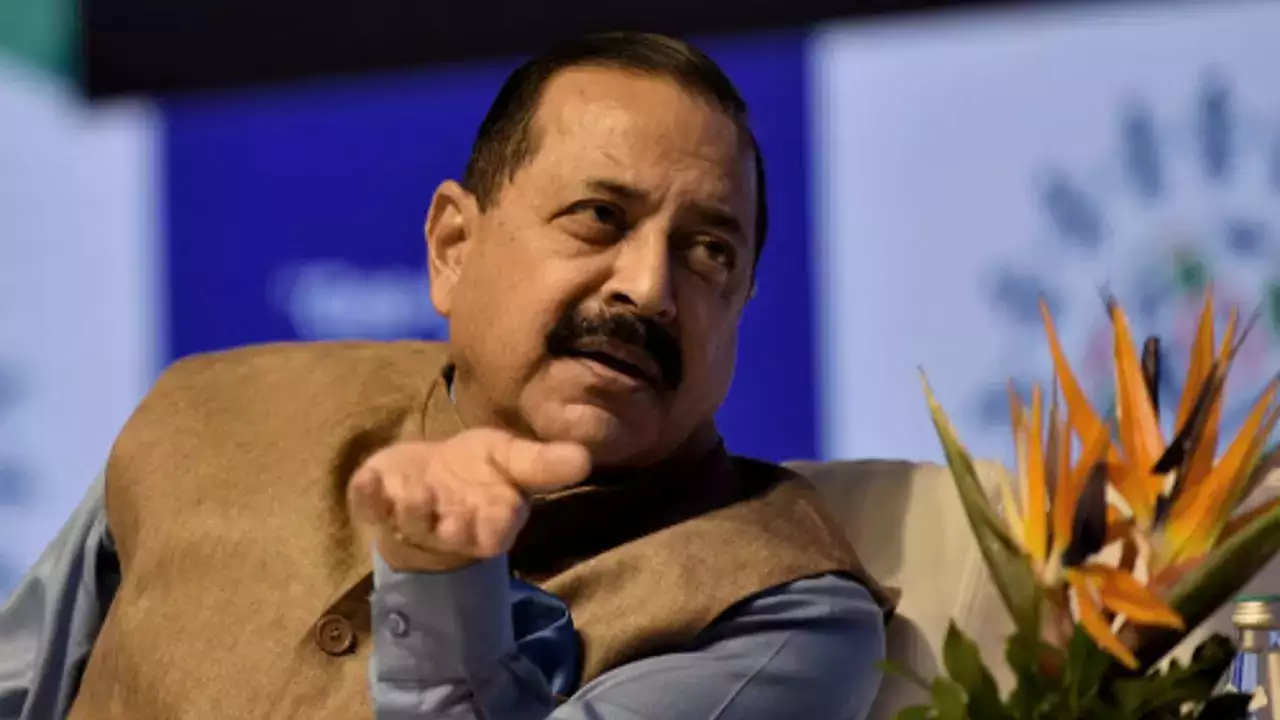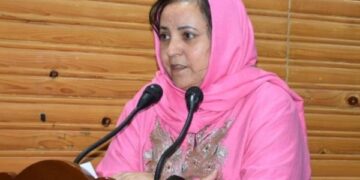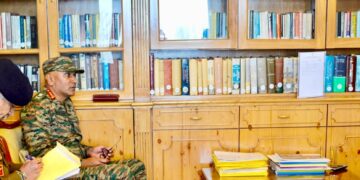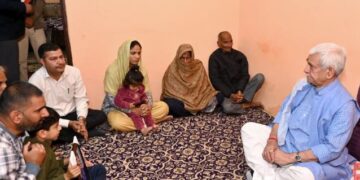Jammu: Union Minister Jitendra Singh said on Wednesday that the Ujh multipurpose project in Jammu and Kashmir’s Kathua district has been revived, and it has the potential to stop the flow of surplus water to Pakistan.
“There is good news to share that the Ujh Multipurpose Project, which was conceived nearly 100 years ago in 1920s by the then Maharaja, has been now revived and a coordination working group has been constituted of the J&K UT officers and the Central officers,” the Union Minister said, while chairing the District Development Coordination and Monitoring Committees (DISHA) meeting in Kathua which is part of his Udhampur parliamentary constituency.
Singh said once this project becomes functional, it will provide irrigation to thousands of hectares of land, which could go up to even 90,000 hectares and informed that an alternate plan is being prepared to stop the surplus flow of water into Pakistan.
“The project has also received a flip because of the intervention of the Home Ministry and the Defense Ministry, which are also now keen to complete the project in order to check the infiltration route through the river Ujh,” the minister said.
The Ujh project is a multipurpose (hydropower, irrigation and drinking) river valley scheme and is the first of its kind in Jammu and Kashmir. The proposed project is on the Ujh River, which is one of the main tributaries of the Ravi.
This project was conceived to enhance India’s utilisation of the waters of the Eastern Rivers under the Indus Waters Treaty, which is presently in abeyance following the Pahalgam terror attack.
At the meeting, he also said the last phase of the Shahpur Kandi project will be completed by September 15.
The work on the dam, located on the Ravi river, had been stalled for over four decades, according to the Union minister; it resumed once J&K and Punjab ratified an agreement in September 2018.
The project has the potential to irrigate around 5,000 hectares in Punjab and 32,000 hectares in Jammu and Kashmir’s Samba and Kathua districts.
Also, the dam will help save any excess Ravi water that used to flow to Pakistan during the rainy season, besides supplying 206 MW of electricity to Punjab.
The minister said the industrial biotech park in Barnoti (Kathua), which is the 11th such industrial park in the country and the first in north India, will become functional in the next few weeks with the involvement of public-private participation.
“This will create avenues of jobs, manufacturing and business for the youngsters in various areas of bio-manufacturing and hospital instruments,” he said.
Singh highlighted that the long-standing demand for the Bala Sundri tunnel and the route will also be addressed as the government has taken up a road project from Lakhanpur to Doda via Chattra Gala Tunnel, which will include this route.
The minister said over 1,000 additional bunkers have been proposed, which will bring the total number of family bunkers in the Kathua border areas to nearly 3,000.
He also said north India’s first-ever homoeopathy college has been approved for construction in Kathua district, and will cater to the neighbouring states of Punjab and Himachal Pradesh.
Talking tough on illegal mining, he said the menace is threatening the erosion of the foundations of some of the vital infrastructure projects, including the Keerian Gadiyal bridge and expressway corridor. The minister asked the Senior Superintendent of Police and the district mining officer to furnish a report on the matter.
The minister also came out heavily on the spreading menace of drug addiction and suggested that a joint committee of district administration, police, public representatives, and members of the civil society be constituted to check this rapidly spreading drug abuse at different levels.








